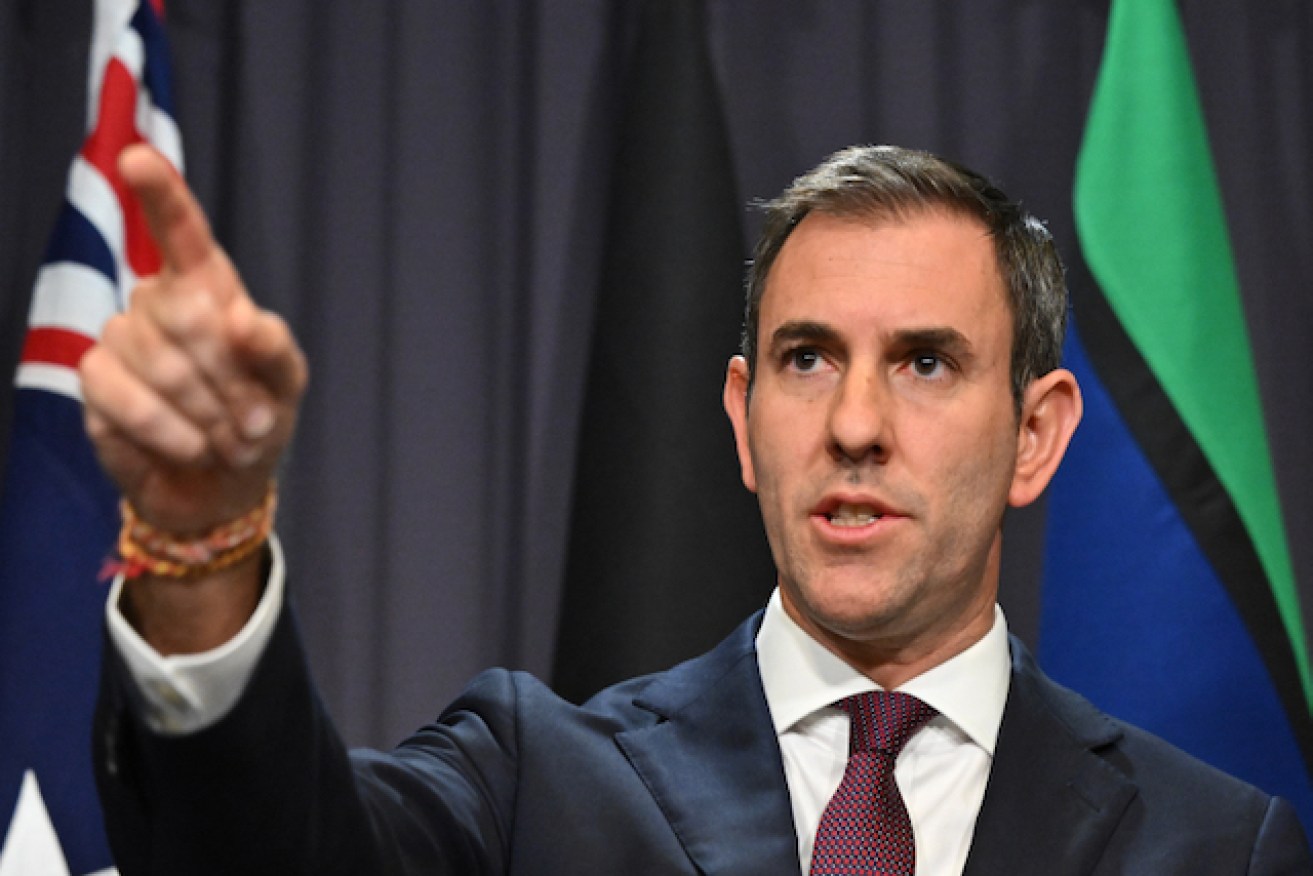Treasurer warns of ‘confronting’ economic forecast tomorrow
Wages are unlikely to keep up with rising inflation in the short term says Treasurer Jim Chalmers ahead of delivering an economic statement on Thursday, with the Reserve Bank widely expected to hike interest rates again next week.

Treasurer Jim Chalmers. Photo: AAP/Mick Tsikas
As official inflation rose a point over the quarter to 6.1 per cent in figures released today, Chalmers said it would likely get higher in coming months.
Chalmers will deliver what he described as a “confronting” economic statement to parliament on Thursday, ahead of the October budget.
It will contain updates on inflation, wages, unemployment, economic growth and other key figures.
He said inflation would be revised up “substantially” with growth revised down, as well as point to a short-term lag in wages.
“The idea that we would be forecasting wages growth that keeps up with (rising inflation), I think, would not be credible in the near term,” Chalmers said in Canberra on Wednesday.
“My expectation is that there will be real wages growth this term of parliament. It has proven particularly tricky to forecast wages growth in the last little while.”
Chalmers said while the figures would make for difficult reading, people needed to know the state of finances, ahead of the federal budget in October.
“I wanted to make sure that Australians understood and understand the circumstances as we expect them to be over the coming months and years,” he said.
Chalmers said that the June quarter inflation data does not include the rises in household and business energy bills that came into effect in July.
“Inflation is high and rising. It will get tougher before it gets easier,” he said.
The outcome on Wednesday was driven by the rising cost of fuel, food and groceries, housing and furnishings.
The pace of price growth in the food and non-alcoholic beverages segment was 5.9 per cent over the year.
Automotive fuel costs rose 32.1 per cent over the year, housing by nine per cent while furnishings, household equipment and services costs were up 6.3 per cent.
Within the housing segment, the cost for new owner-occupied dwellings was up 20.3 per cent over the year – the highest since the data series began in 1999.
While he attempted to curb expectations about government measures that may be included in the budget due to fiscal pressures, Chalmers said housing would be a key focus of the Albanese government’s first economic blueprint.
“Some of our most substantial policies you’ll see budgeted for in October are around housing, whether it’s help to buy, whether it’s the housing future fund,” he said.
“We’ve made housing a big priority, because it’s a big part of the inflation challenge.”
Chalmers also indicated it would be unlikely the petrol excise cut would be extended once the six-month reduction runs out.
“During this cost of living crisis, it is not possible with our budget constraints to fund every good idea that people might have about cost of living relief,” he said.
“We need to tread a pretty careful path here when it comes to budget … we need to make sure that everything we do ticks more than one box.”
“We are not surprised to see inflation north of six per cent, but it’s still confronting,” Dr Chalmers said in Canberra on Wednesday.
“This inflation outcome today mirrors the lived experience of Australians who are doing it tough right now.”
Meanwhile, all eyes are now on the Reserve Bank of Australia and its meeting next Tuesday to discuss lifting the 1.35 per cent cash interest rate.
The market consensus is for a 50 basis point rise, which would take the cash rate to 1.85 per cent and prompt lenders to lift their variable mortgage and other rates.
The central bank is trying to crack down on domestic price pressures and return inflation to its two to three per cent target range.
-with AAP




